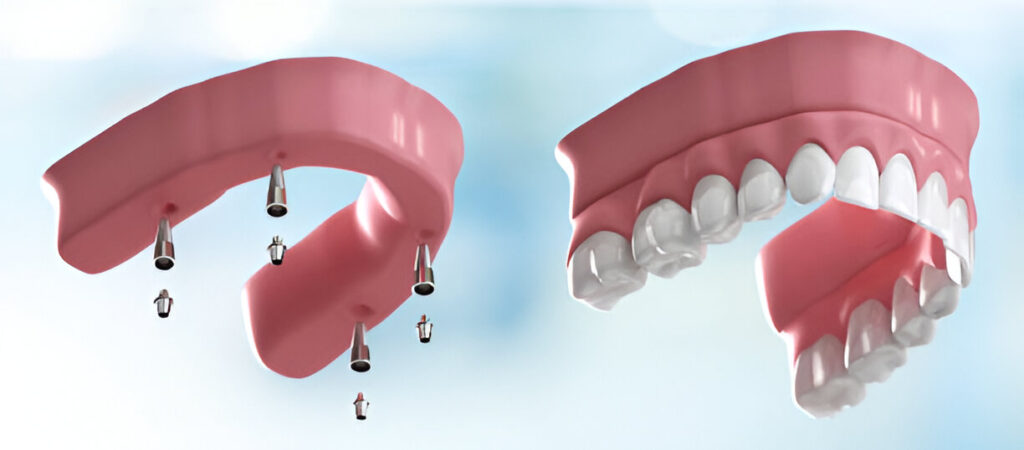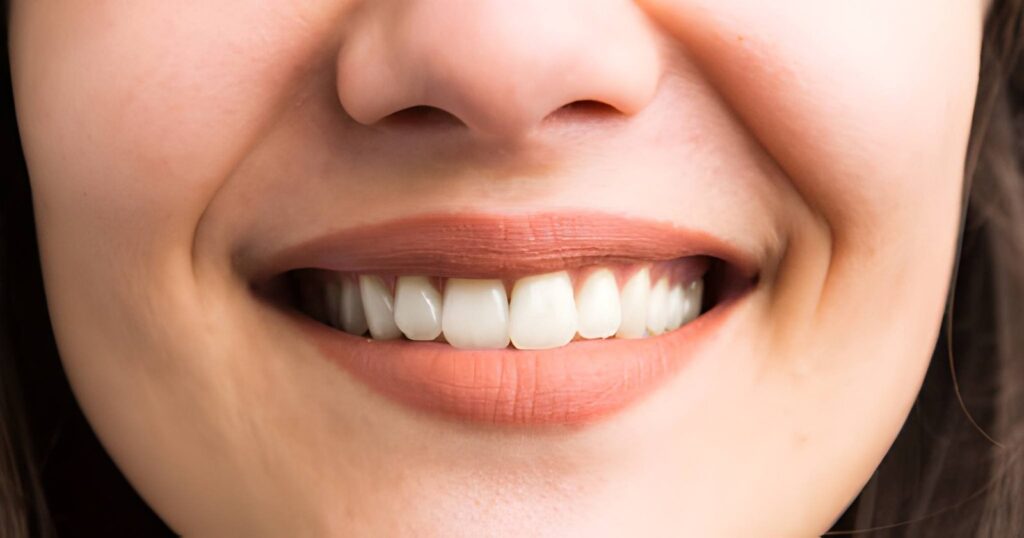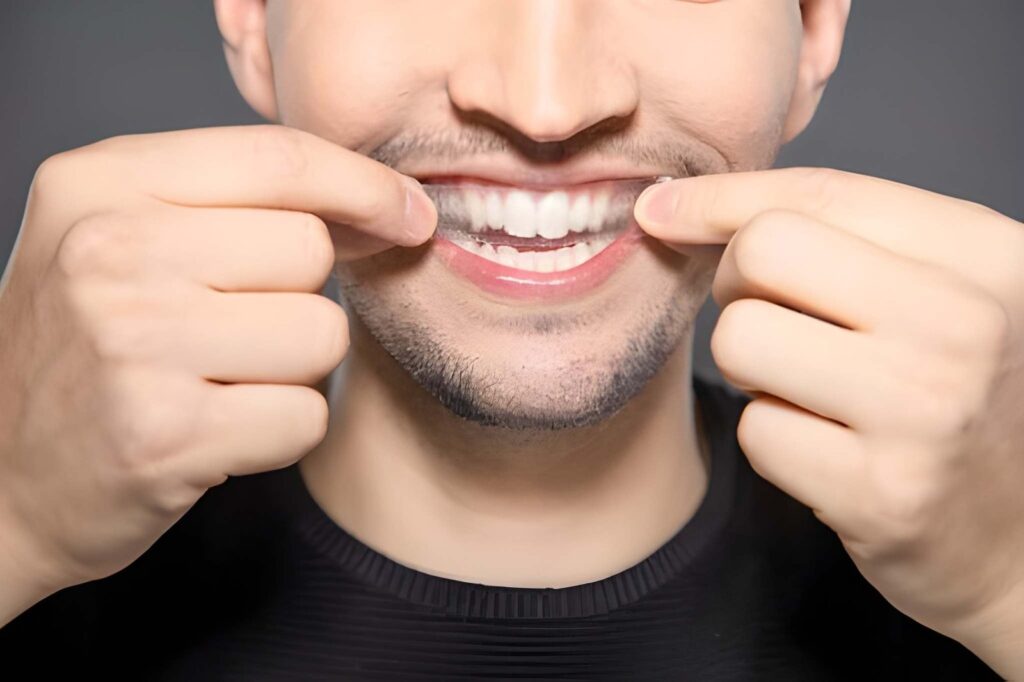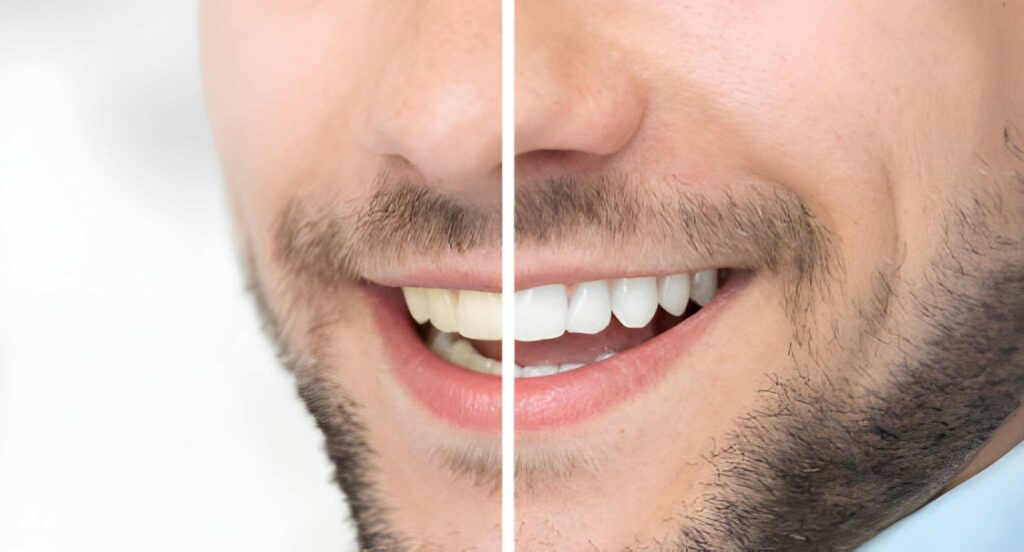Dental implants are a popular solution for replacing missing teeth. However, the recovery process after surgery is crucial to the success of the implant. One of the key aspects of recovery is ensuring you follow the right diet to support healing and avoid complications. In this guide, we’ll explore what to eat and what to avoid after dental implant surgery in the UK.
Understanding the Healing Process
The healing time after full-mouth dental implants Aberdeen surgery can vary depending on several factors, including the complexity of the procedure and your overall health. The process of osseointegration, where the implant fuses with the bone, typically takes a few months. During this period, it’s important to eat foods that promote healing and avoid anything that could hinder recovery.
How Long Before Dental Implants Feel Normal?
What to Eat After Dental Implant Surgery
After dental implant surgery, it’s essential to consume soft, nutritious foods that are easy to chew and won’t put stress on the surgical site. Here are some food recommendations that will help during the healing process:
- Mashed Potatoes
Mashed potatoes are soft, easy to eat, and provide essential carbohydrates. They can be a comforting and nutritious choice immediately after surgery. To make it even more beneficial, you can add a little butter or olive oil for added nutrition. - Yoghurt
Yoghurt is rich in protein and calcium, which are essential for the healing process. Choose plain or lightly flavoured varieties to avoid irritation. It’s soft, smooth, and requires minimal chewing, making it an excellent post-surgery food. - Smoothies
Smoothies are an ideal choice, as they are easy to drink and can be packed with nutrients. You can blend fruits, vegetables, and protein-rich ingredients like yoghurt or protein powder. Avoid using a straw, as the suction can dislodge blood clots and hinder healing. - Soft Scrambled Eggs
Scrambled eggs are high in protein, which helps with tissue repair. They are soft and easy to chew, making them perfect for the initial healing phase. You can also add cheese or vegetables for added flavour and nutrition. - Soup
Warm (not hot) soup can be soothing and easy to consume after dental implant surgery. Stick to smooth, blended soups to avoid any hard chunks that may irritate the surgical site. Opt for vegetable-based soups or broths to ensure you’re getting the nutrients you need. - Oatmeal
Oatmeal is soft and easy to eat, providing plenty of fibre and energy. Make sure it’s not too hot, and avoid adding hard toppings like nuts or dried fruit. You can sweeten it with honey or add some mashed bananas for extra flavour. - Cottage Cheese
Cottage cheese is soft and packed with protein. It’s easy to eat and offers essential nutrients for healing. You can eat it on its own or pair it with soft fruits like peaches or berries for a healthy snack. - Steamed Vegetables
Steamed vegetables like carrots, peas, or spinach are soft and easy to chew. They provide essential vitamins and minerals, aiding in the healing process. Make sure they are well-cooked and cut into small pieces to avoid any discomfort.
Can You Have Dental Implants with Gum Disease in the UK?
Foods to Avoid After Dental Implant Surgery
While there are many foods that are beneficial after dental implant surgery, there are also several foods you should avoid to prevent complications and ensure a smooth recovery:
- Hard Foods
Avoid crunchy foods like nuts, chips, and hard candies. These can put unnecessary pressure on the implant site and may cause discomfort or damage to the implant. - Sticky Foods
Sticky foods like caramel, toffee, or gum can get stuck in your teeth and gums, potentially irritating the surgical area. They can also dislodge the implant if not properly cleaned. - Spicy Foods
Spicy foods can irritate the surgical site and cause discomfort during the healing process. It’s best to avoid hot curries, Mexican food, and other spicy dishes in the first few days. - Dairy Products
While dairy is a good source of calcium, it can also increase the risk of infections due to bacteria in some products. It’s recommended to avoid dairy in the first few days after surgery. - Alcohol
Alcohol can interfere with the healing process and may interact with any pain medication or antibiotics you may be taking. It’s best to avoid alcohol for the first few weeks after surgery. - Chewy Foods
Chewy foods like bagels or steak can put a strain on your new implant and may cause discomfort. Stick to softer foods during the recovery period.
What Are Dental Implants Made Of?
Additional Tips for a Smooth Recovery
- Stay Hydrated: Drink plenty of water to stay hydrated. Avoid sugary drinks, as they can increase the risk of infection and may interfere with your healing process.
- Maintain Good Oral Hygiene: While you should avoid brushing the surgical area for the first 24 hours, it’s important to continue brushing and flossing the rest of your mouth. After a few days, you can gently clean the implant site with a soft toothbrush.
- Follow Your Dentist’s Instructions: Always follow your dentist’s advice on food and care. They will provide specific instructions based on your individual needs and the complexity of the surgery.
When is it Too Late to Get Dental Implants
How Long Should You Stick to a Soft Food Diet?
The length of time you should stick to a soft food diet depends on your recovery. Generally, it’s recommended to follow a soft food diet for the first 10-14 days after surgery. However, this can vary depending on how quickly your body heals and the type of implant procedure you underwent. Always consult with your dentist for a personalized recovery plan.
Can You Lose Your Gums Around Dental Implants?
Conclusion
Eating the right foods after dental implant surgery is crucial for a smooth and quick recovery. Stick to soft, easy-to-eat foods like mashed potatoes, smoothies, and scrambled eggs during the healing period, and avoid hard, spicy, and sticky foods that could disrupt the implant. Be patient, follow your dentist’s instructions, and give your implant the time it needs to fully integrate with your jawbone.
If you are looking for more information or need guidance on your recovery, don’t hesitate to contact Holburn Dental and Implant Centre. Our team is here to support you every step of the way, ensuring that you enjoy a healthy and comfortable recovery. Book an appointment with us today!
How Much Are All-on-4 Dental Implants in the UK?
Ready for a Smooth Recovery?
At Holburn Dental and Implant Centre, we’re committed to providing you with expert care every step of the way after your dental implant surgery. We understand that your recovery is just as important as the procedure itself, and we’re here to ensure that your healing process goes smoothly.
If you have any questions about your diet or need guidance during your recovery, don’t hesitate to reach out to our experienced team. We are here to support you in making the best choices for your health and well-being.
Frequently Asked Question
How long after dental implant surgery can I eat normally?
It typically takes 1-2 weeks for your mouth to heal sufficiently to return to a normal diet. Always follow your dentist’s advice and avoid hard or crunchy foods during this time.
Can I drink coffee after dental implant surgery?
It’s best to wait until the first few days of recovery to drink hot beverages like coffee, as they can irritate your healing implant site.
Is it safe to eat cold food after dental implants?
Yes, cold food is usually safe and can help reduce swelling. Smoothies, cold yogurt, and chilled soups are good choices during the initial recovery period.
Are there foods to avoid after dental implant surgery?
Avoid crunchy, sticky, or very hot foods immediately after surgery. Foods like nuts, seeds, and hard candies can irritate or damage the surgical site.
Can I eat solids after 1 week of dental implant surgery?
After the first week, you can gradually introduce soft solids into your diet. However, be cautious with tough or chewy foods and continue to follow your dentist’s instructions.




